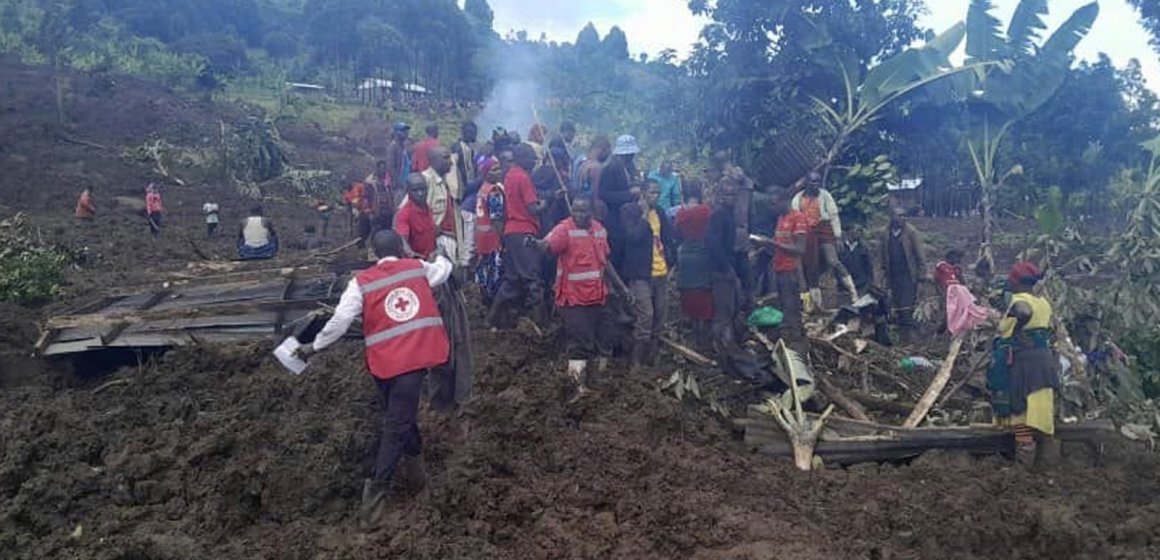|
LISTEN TO THIS THE AFRICANA VOICE ARTICLE NOW
Getting your Trinity Audio player ready...
|
Heavy rains unleashed a catastrophic landslide in eastern Uganda on Thursday, November 28, claiming at least 13 lives and leaving countless others missing in Bulambuli district, a remote region nestled in the country’s mountainous east. Officials fear the true scale of the tragedy is far greater, with reports suggesting that more than 40 homes were swallowed by the earth, and the death toll could climb as high as 30.
The disaster unfolded after days of unrelenting downpours, triggering cascading mud and debris that buried entire villages without warning. Rescue teams, led by the Ugandan Red Cross Society, worked tirelessly to recover bodies, most of them tragically being children. The district, located about 280 kilometers from Kampala, has long been vulnerable to landslides, particularly during the rainy season.
Rivers swollen from the torrential rainfall exacerbated the crisis, flooding schools, churches, and bridges, cutting off communities already grappling with the aftermath of the landslide. On Wednesday, a day before the disaster struck, Prime Minister Robinah Nabbanja issued a warning, urging citizens to prepare for possible floods and landslides. However, the magnitude of the event left little time for action.
The military was swiftly deployed to aid in search and recovery efforts. Soldiers, equipped with limited resources, struggled against the challenging terrain and relentless rains. The operation turned tragic when a rescue boat deployed to save passengers from a flooded taxi capsized, claiming the life of an engineer.
In parliament on Thursday, Speaker Anitah Among expressed deep sorrow over the disaster, offering condolences to the families of those who perished. She called for urgent measures to support the survivors and rebuild the devastated region.
Bulambuli district, known for its lush landscapes and farming communities, has increasingly suffered from landslides due to deforestation and poor land management. Experts have long warned that environmental degradation, coupled with the intensifying effects of climate change, has made the region a ticking time bomb during heavy rains.











LEAVE A COMMENT
You must be logged in to post a comment.